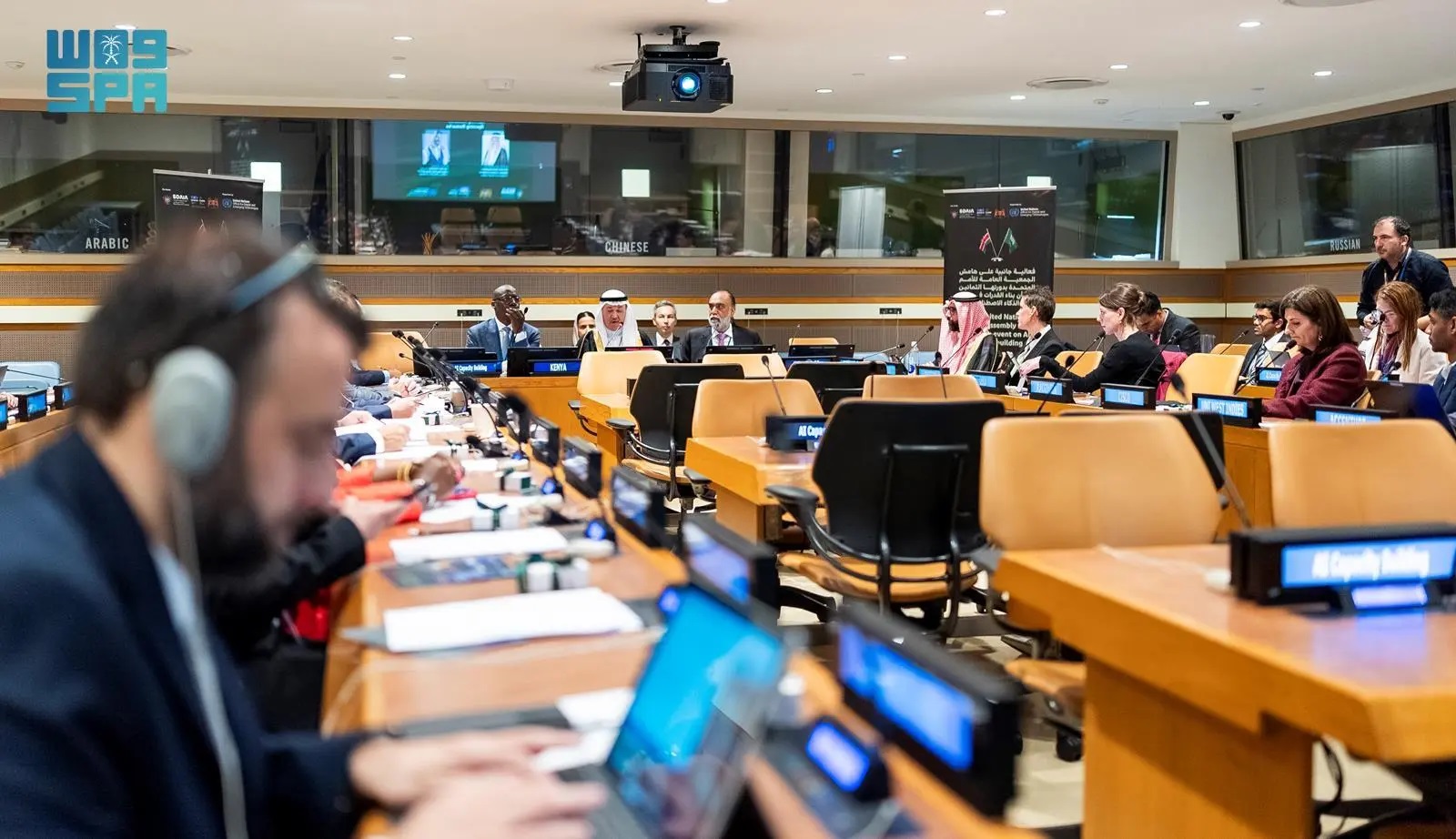
Saudi Arabia, Kenya Call for Inclusive AI Capacity-Building at High-Level UNGA Event
The Kingdom of Saudi Arabia, the Republic of Kenya, and the International Center for AI Research and Ethics (ICAIRE) convened on September 23, 2025, on the margins of the 80th Plenary Session of the United Nations General Assembly in New York the high-level event "Empowering Nations for Inclusive Prosperity in the Era of Artificial Intelligence," supported by the United Nations Office for Digital and Emerging Technologies.
Building on the UN secretary-general’s report on Innovative Voluntary Financing Options for Artificial Intelligence Capacity-Building, Saudi Arabia and Kenya mobilized governments and stakeholders to translate this vision into concrete action by advancing the creation of a global network of AI capacity-building centers. The under-secretary-general and special envoy for digital and emerging technologies highlighted the invitation to member states to consider creating centers for exchange and cooperation and offered to have these centers be part of a United Nations–supported network, which would facilitate coordination and the availability of in-kind contributions from universities, corporations, member states, and other relevant actors. It will broaden access to skills, resources, and innovation for developing countries with emerging AI ecosystems, strengthen institutional capacity, and enable more inclusive participation in the digital era.
Several governments, including Saudi Arabia, Kenya, China, Trinidad, India, and Kazakhstan, committed to exploring the establishment of such centers as part of a United Nations–supported network. They encouraged other member states to join the initiative and requested the support of the United Nations Office for Digital and Emerging Technologies in the network’s formation and functioning. The private sector and academia, including WorldQuant University, Cisco, and Oracle, committed to working with the network to provide skills training across governments, universities, SMEs, and civil society.
Centers identified as potential contributors include ICAIRE (Saudi Arabia), the Center for Global AI Innovative Governance of Fudan University (China), the African Institute for Capacity Development (Kenya), the Indian Institute of Technology Madras (India), the forthcoming International Center for Artificial Intelligence (Kazakhstan), and the University of the West Indies Artificial Intelligence Innovation Center, which operates across the Caribbean region with campuses in five countries. The meeting, co-hosted by Saudi Arabia, Kenya, and ICAIRE, is serving as the cornerstone for a proposal to draft a charter that will provide parameters for the network in time for the AI Impact Summit in February 2026.
Saudi Data and AI Authority (SDAIA) Vice President Sami Muqeem stated: “Our discussion today is not about abstract principles, but about action: building skills, expanding education, ensuring fair access to innovation, and embedding ethics and inclusivity into all we do. Let us commit to advancing artificial intelligence responsibly—not for the benefit of a few, but to equip all people and all nations with the capacities they need to thrive in the digital era.”
Kenyan Special Envoy for Technology Ambassador Philip Thigo stressed: “Capacity-building is crucial for the safe and responsible adoption of AI. We need collaborations to strengthen institutional readiness and close the AI divide in the Global South. We are committed to working with all stakeholders, with the support of the UN, to establish and grow these Centers of Excellence that can boost AI capacity in developing countries.”
The establishment of a network of AI centers represents a concrete step toward strengthening international cooperation, advancing responsible innovation, and expanding opportunities for inclusive capacity-building in artificial intelligence at the global level.








